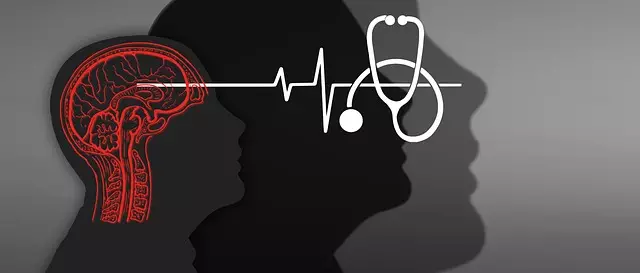Despite advancements in mental healthcare, misdiagnoses remain a challenge at Kaiser Permanente's mental health centers in Aurora. Overlapping symptoms of mental illnesses contribute to this issue. Risk Management Planning, patient journaling, and open conversations are key to improving diagnostic accuracy. The centers offer holistic treatments, evidence-based practices, and personalized plans, backed by strong reviews. They also implement feedback systems, workshops, and training programs to enhance diagnosis accuracy, foster patient empowerment, and challenge mental health stigmas.
Mental illness diagnosis accuracy is paramount for effective treatment and patient outcomes. However, misdiagnoses remain a significant challenge in mental health care. This article explores efforts to enhance diagnostic precision, focusing on best practices from leading centers like Kaiser Permanente Aurora, known for its exceptional mental health care. We delve into review systems, training programs, and patient-centered approaches that are revolutionizing diagnosis accuracy, based on insights from Kaiser Permanente Aurora reviews.
- Understanding the Challenge: Uncovering Misdiagnoses in Mental Health
- Kaiser Permanente Aurora: A Center for Excellence in Mental Health Care
- Review and Feedback Systems: Enhancing Diagnosis Accuracy
- Training and Education: Equipping Clinicians for Better Assessment
- Patient-Centered Approach: Empowering Individuals in Their Mental Health Journey
Understanding the Challenge: Uncovering Misdiagnoses in Mental Health

Uncovering misdiagnoses in mental health is a complex challenge faced by many Kaiser Permanente mental health center reviews Aurora. While significant strides have been made in understanding and treating various mental illnesses, diagnostic errors remain a concern. This is partly due to the intricate nature of mental health conditions, which often present with overlapping symptoms, making differentiation difficult. The impact of misdiagnosis can be profound, leading to inappropriate treatment plans that may exacerbate existing symptoms or fail to address underlying issues altogether.
Risk Management Planning for Mental Health Professionals plays a crucial role in mitigating these errors. By implementing structured assessment protocols and regularly reviewing cases, professionals at Kaiser Permanente mental health centers in Aurora can ensure a more accurate diagnosis. Additionally, encouraging patients to engage in Mental Wellness Journaling Exercises Guidance can provide valuable insights into their experiences, helping professionals track symptom patterns and make informed decisions. Ultimately, fostering open conversations about emotional healing processes is essential for improving diagnostic accuracy and promoting better patient outcomes.
Kaiser Permanente Aurora: A Center for Excellence in Mental Health Care

Kaiser Permanente Aurora stands as a beacon of hope and excellence in mental health care. This renowned center has garnered rave reviews for its comprehensive approach to treating various psychiatric disorders. By integrating cutting-edge treatments with evidence-based practices, Kaiser Permanente Aurora offers a holistic experience designed to heal not just symptoms but also the underlying emotional wounds that often plague individuals struggling with mental illness.
The facility’s focus on inner strength development and anxiety relief has been particularly noteworthy, reflecting a deep understanding of the complex nature of these conditions. Through personalized treatment plans, supportive staff, and innovative therapies, Kaiser Permanente Aurora fosters an environment conducive to profound emotional healing processes. Its reputation as a leader in mental health care makes it a top choice for those seeking effective and compassionate treatment, underscoring its role as a game-changer in the landscape of psychiatric care.
Review and Feedback Systems: Enhancing Diagnosis Accuracy

At Kaiser Permanente mental health centers, like those in Aurora, review and feedback systems have emerged as powerful tools to enhance diagnosis accuracy. By encouraging open dialogue between patients, healthcare providers, and specialists, these systems foster a culture of continuous improvement. Patient reviews and feedback sessions provide an opportunity for individuals to share their experiences, highlighting areas where the care they received was exceptional or where there’s room for growth. This valuable insight helps mental health professionals refine their diagnostic approaches, ensuring more precise evaluations.
Additionally, integrating initiatives like Stress Management Workshops, Depression Prevention programs, and Empathy Building Strategies into the review process can further optimize diagnosis accuracy. Such workshops and programs not only empower patients with coping mechanisms but also equip healthcare providers with enhanced skills to understand and address complex mental health issues more effectively. This holistic approach, combined with rigorous feedback mechanisms, contributes to the overall improvement of diagnosis accuracy at Kaiser Permanente mental health centers.
Training and Education: Equipping Clinicians for Better Assessment

At Kaiser Permanente mental health centers like those in Aurora, training and education play a pivotal role in enhancing diagnosis accuracy. These efforts focus on empowering clinicians with advanced assessment techniques, fostering an environment where emotional healing processes can be effectively facilitated. By providing comprehensive training on various mental health conditions, including their complex manifestations, healthcare professionals gain the skills needed to navigate the nuances of patient presentations.
Moreover, ongoing education emphasizes evidence-based practices such as Stress Reduction Methods and Self-Care Practices. This holistic approach ensures that clinicians not only accurately diagnose but also offer tailored interventions, enhancing patient outcomes. Through these rigorous training programs, Kaiser Permanente mental health centers strive to set industry standards, improving diagnosis accuracy while promoting the well-being of individuals seeking support at their facilities, as evidenced in numerous Aurora mental health center reviews.
Patient-Centered Approach: Empowering Individuals in Their Mental Health Journey

At Kaiser Permanente mental health centers in Aurora, we’re revolutionizing care through a patient-centered approach that puts individuals at the heart of their mental health journey. This means fostering open and honest communication strategies, empowering patients with effective self-care practices, and providing resources tailored to their unique needs. By involving patients actively in decision-making processes, we ensure a collaborative environment where trust and understanding thrive.
Our efforts extend beyond individual treatment, encompassing public awareness campaigns development that challenge stigma and promote mental well-being. We believe that informed communities are essential for fostering an inclusive atmosphere where everyone feels comfortable seeking support. Through these initiatives, Kaiser Permanente aims to enhance diagnosis accuracy by creating a supportive network that encourages dialogue, education, and proactive mental health management.
Efforts to enhance mental illness diagnosis accuracy, as demonstrated by Kaiser Permanente Aurora’s leadership in mental health care, are pivotal. Implementing comprehensive review and feedback systems, coupled with advanced training and education, ensures clinicians are well-equipped to make precise assessments. Adopting a patient-centered approach not only empowers individuals but also fosters trust and improves outcomes. In light of these strategies, centers like Kaiser Permanente Aurora in mental health center reviews Aurora set the bar for excellence, aiming to minimize misdiagnoses and maximize patient care.






